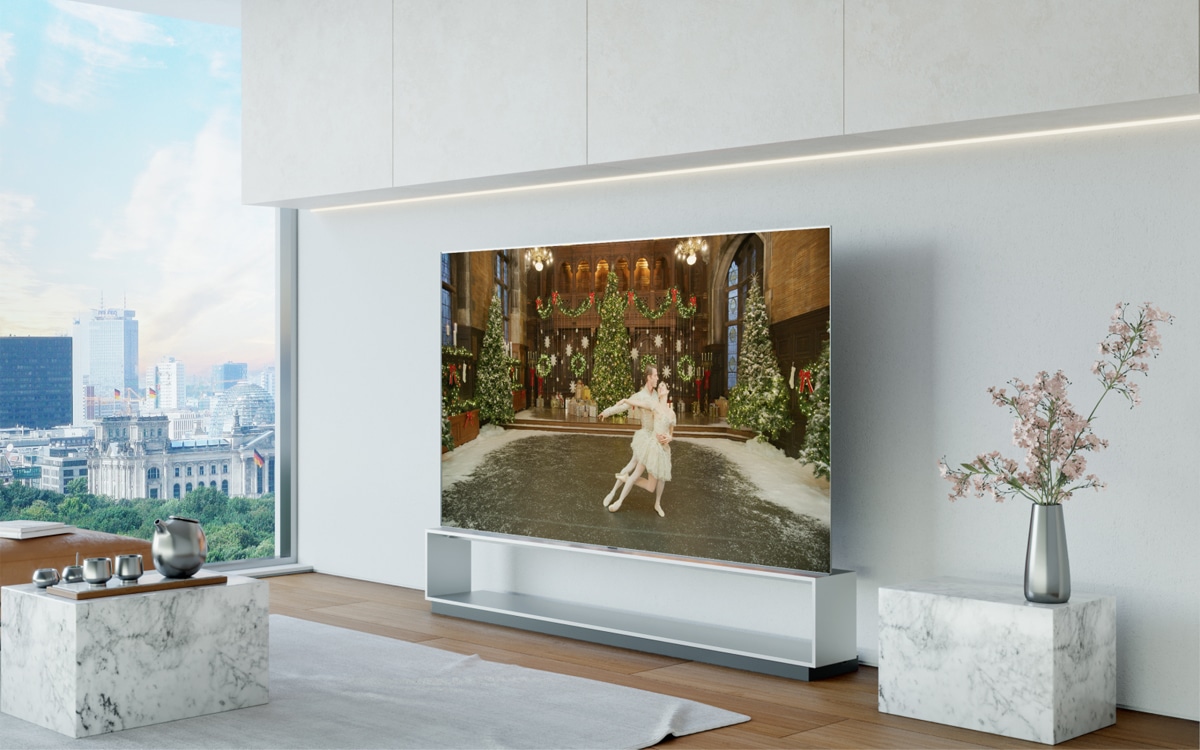But in the years since 8K TVs entered the market, they’ve yet to completely overtake 4K TVs. In fact, both display types are still widely sold. Offering you the chance to choose between one of the two resolutions.
Because 8K TVs have yet to completely take over, you might wonder if it’s even worth buying one. Why splash the extra cash on a TV that’s yet to fully prove itself?
One of the reasons many people hesitate to buy 8K TVs is because of a lack of experience with them. Luckily, the tech experts here at Reliant have been tinkering with 8K displays since they were first released. Using their extensive knowledge, we’ve put together this guide to find out if an 8K TV is worth your attention!
Is It Worth Buying An 8K TV?
The answer to this question can actually differ from case to case. It will depend on the kind of content you plan to use your TV for. Let’s take a look at some of the potential use cases!
For Film And TV
If you want to make the most of film and TV content, then an 8K TV can be a very worthwhile purchase. Though most films are made with 4K in mind, those few films and TV shows that display in 8K look perfect on a compatible screen. This content looks even better on larger screens, and thankfully, 8K resolutions allow you to opt for the largest TVs on the market. A 98-inch TV will look much better with an 8K resolution, rather than a 4K resolution!
For film and TV fans, 8K resolutions, paired with expansive screen sizes, are perfect. Despite there being fewer 8K films than 4K films, 8K upscaling technology makes it easy to enjoy legacy content!
Unfortunately, there’s much less 8K content than 4K content currently available. While this might be disheartening news, 8K TVs are designed fully equipped to handle this issue! 8K upscaling is a built-in technology found in many 8K TVs across the market. When this technology is active, all you need to do is play a piece of content. The TV will analyse the incoming video signal, and improve the resolution of the image as it’s received. You can make non-8K content appear natively 8K!
For Gaming
There’s not much point in grabbing an 8K TV for gaming. Even the strongest of consoles, like the PlayStation 5 and Xbox Series X can only output 4K graphics. This means that those extra 8K pixels won’t even be put to good use! You would save more money opting for a smaller 4K TV!
It’s also not worth using 8K upscaling technology on your existing games collection. 8K upscaling is a post-processing effect. This is worth mentioning as it will have a direct impact on the performance of your games. Upscaling is performed automatically after an 8K TV receives a video signal. In order to analyse and upscale the image, there is a slight delay between the signal reaching the TV, and it being displayed on-screen. This adds entire milliseconds of input delay. It would take longer for your in-game character to respond when you press a button!

Standard TV Programming
This can be a little more tricky. Whether or not 8K resolutions are worth the effort will depend on the kind of TV you’re watching.
For live sports fans, an 8K TV may be worthwhile, for its increased screen size. For those who need a simple TV for catching up with content in smaller spaces, then 8K is not necessary!
For live sports, and for upscaled sports footage, an 8K resolution can certainly be a great benefit. 8K resolutions allow you to spot every last blade of grass on the football pitch, and to even identify individual players as they run around. However, unfortunately, very few sports events are broadcast in 8K. Most sports events are broadcast in 4K at best. However, 8K TVs often boast large screen sizes. These are great for sport, offering a panoramic view that lets you feel like you’re in the stands at the year’s biggest matches!
If you just need a basic TV that you can switch on in the morning, to catch up with the news, then there’s really no point in grabbing an 8K model. In fact, if you’re ever looking for a TV for a smaller space, like a bedroom, it’s best to avoid 8K. Smaller rooms require smaller televisions. The smaller a TV is, the less screen space it has. The 33 million pixels that make up 8K resolutions would simply be put to waste on a 32-inch TV, for example!
Frequently Asked Questions
Is It Worth Buying An 8K TV?
For film and TV buffs, 8K televisions may be a totally perfect purchase. The higher resolution, paired with a greater screen size allows cinematic content to look its best. However, for other content, such as gaming and standard broadcast television, 8K is totally unnecessary. In fact, there’s little 8K content compared to 4K. So for many people, these displays may be totally unnecessary.
Does Netflix Support 8K?
No. There is not currently any content available on Netflix that supports 8K resolutions. The top resolution that can be accessed on the streamer is 4K. In order to access this resolution, users must sign up for the premium subscription tier. It’s unclear whether 8K content will ever come to the platform, or any other streaming services!
Can You Tell The Difference Between 4K And 8K?
Absolutely. The difference between the two resolutions is incredibly clear on the largest TV screens. 8K has 4 times the number of pixels as 4K. A larger TV screen makes this leap in pixel count immediately clear. 8K images on larger screens allow you to see every single detail in the image!





